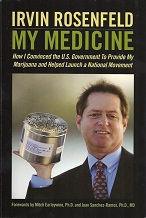
The latest research from Denmark shows how industrial hemp can efficiently make chemicals normally produced from petroleum. New developments could push hemp to the forefront of a new wave of biorefinery technology that aims to use plants to produce fuel and chemicals that, up until now, we have extracted from fossil fuels.
The shift away from fossil fuels as a source of energy and raw materials means scientists and engineers have started to eye fast-growing, high-yielding crops to replace them. Petroleum goes much further than just gasoline and has made itself indispensable for modern society. Disasters like the Deepwater Horizon oil spill and the market shift toward tar sands make it obvious that oil companies have to go deeper and deeper into the Earth to get petroleum, and it never gets any easier. With so much technology invested into extracting chemicals from petroleum, the industry is reluctant to make a shift, but times are quickly changing.
Going much further than just using corn to make ethanol, scientists are looking at many different crops and trying to optimize their applications. Succinic acid, identified as one of the most important platform chemicals[1] in industry, goes into many plastics, food additives and medicines[2]. Though generally produced from petroleum, researchers in Denmark[3] have designed a biorefinery concept that can produce 149 kg of ethanol and 115 kg of succinic acid per ton of hemp. Looking at just ethanol production, hemp yields less than corn per acre: 136 gallons of ethanol[4] per acre of hemp compared to 317 gallons of ethanol[5] per acre of corn. But if the hemp can make ethanol and succinic acid at once, it might become more profitable and further reduce the chemical industry’s need for fossil fuels.
Hemp also has a number of other traits that make more favorable to grow than conventional crops. Hemp grown for fiber tolerates poor soil, so it doesn't have to compete with edible crops like corn or wheat. Other varieties of hemp can be edible; rich in protein and omega fatty acids, hemp seed could compete with corn for livestock feed and with soybeans as a source of vegetable oil. Hemp grows in dense fields with their stalks very close together, and doesn't require input of herbicides because the fast-growing foliage smothers everything else early in the season.
We started with hemp rolling papers; we could end with hemp-fueled cars and hemp-feed beef burgers as well. As the world embraces plants to replace petroleum, we could soon discover the greenest side of the leaf.
References
- ^ one of the most important platform chemicals (onlinelibrary.wiley.com)
- ^ plastics, food additives and medicines (www.thechemco.com)
- ^ researchers in Denmark (www.ncbi.nlm.nih.gov)
- ^ 136 gallons of ethanol (edepositireland.ie)
- ^ 317 gallons of ethanol (www.ipst.gatech.edu)
- ^ Jena Anne (instagram.com)
Latest
Coronavirus Strikes Massachusetts Cannabis Company Employees
Reassessing the Essential: Cannabis in the Time of a Pandemic
5 Reasons To Try Aspen Valley CBG Flower (30% Off)
High Times Cannabis Cups Go Virtual In Wake Of Coronavirus Pandemic
Drug Enforcement Administration Proposes Plan To Expand Cannabis Research
Ghana Legalizes Cannabis For Medicinal And Industrial Uses
The cheapest legal weed in Canada: Discover these cannabis ‘value brands’
Cannabis and coronavirus: Here’s what you need to know
cannabis designs
The Best Of
WHO Rules CBD Should Not Be a Scheduled Drug

Dr Cristina Sanchez PhD video interview on medical marijuana and cancer

Biochemist Dennis Hill interview; Cannabis oil as a cure for cancer.

The unofficial World Record holder for cannabis smoking part 1





